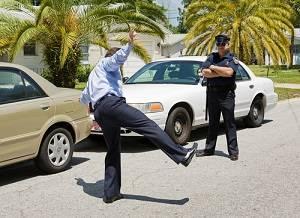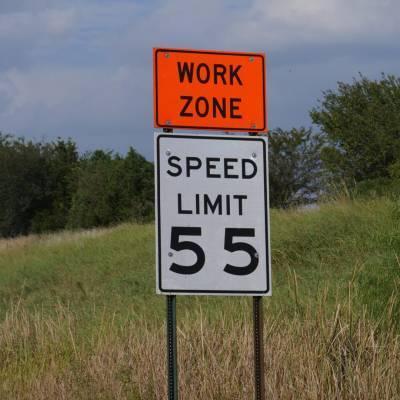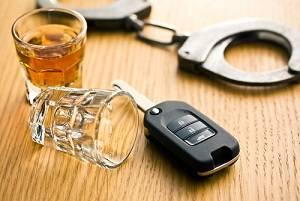Recent Blog Posts
4 Ways a Texas Traffic Stop Could Land You in Jail
 Police officers love turning routine traffic stops into arrests. If they can charge you with a felony, like drug possession, it is even better in their book. For you, on the other hand, the arrest may have been totally unexpected. No one expects their quick run to the store or commute home to end with them in jail and their car in an impound lot. Often, drivers are entirely unaware that they are doing something wrong at the time they get pulled over. You could have simply not realized that you had a tail light out - and really, getting pulled over is one of the more common ways that people find out about such things. The reason you got arrested may have absolutely nothing to do with the original reason you were pulled over. However, as long as the stop was legal, the following investigation can go in any direction. If you were arrested after a traffic stop, Law Offices of Sam H. Lock can fight to defend your freedom.
Police officers love turning routine traffic stops into arrests. If they can charge you with a felony, like drug possession, it is even better in their book. For you, on the other hand, the arrest may have been totally unexpected. No one expects their quick run to the store or commute home to end with them in jail and their car in an impound lot. Often, drivers are entirely unaware that they are doing something wrong at the time they get pulled over. You could have simply not realized that you had a tail light out - and really, getting pulled over is one of the more common ways that people find out about such things. The reason you got arrested may have absolutely nothing to do with the original reason you were pulled over. However, as long as the stop was legal, the following investigation can go in any direction. If you were arrested after a traffic stop, Law Offices of Sam H. Lock can fight to defend your freedom.
Understanding Your Right to Remain Silent After a Criminal Accusation
 If you have been accused of a crime, it is important to understand your rights. One of the most important rights you have is the right to remain silent. This means that you do not have to say anything to the police or anyone else that could incriminate yourself. Often, simply staying quiet is one of the best things a criminal suspect can do to maximize his or her chances of getting the charges dismissed or receiving an acquittal. Unfortunately, remaining silent is often easier said than done. Police and investigators use many different tactics to encourage criminal suspects to divulge information. This is why it is crucial to have an experienced lawyer by your side when you talk to the police.
If you have been accused of a crime, it is important to understand your rights. One of the most important rights you have is the right to remain silent. This means that you do not have to say anything to the police or anyone else that could incriminate yourself. Often, simply staying quiet is one of the best things a criminal suspect can do to maximize his or her chances of getting the charges dismissed or receiving an acquittal. Unfortunately, remaining silent is often easier said than done. Police and investigators use many different tactics to encourage criminal suspects to divulge information. This is why it is crucial to have an experienced lawyer by your side when you talk to the police.
History of the Miranda Warnings
Miranda warnings are a set of warnings that are read to criminal suspects in police custody before they are interrogated. The Miranda warnings were established in the 1966 case of Miranda v. Arizona. In this case, the U.S. Supreme Court ruled that any statements made by a criminal suspect during custodial interrogation can only be used against the suspect if the suspect was first reminded of his or her constitutional rights.
Boating Accidents Involving Alcohol and Injuries Can Lead to Prison Time
 For many people, boating and drinking are almost synonymous. On a hot summer day, nothing may sound more refreshing than an alcoholic drink. However, boating while under the influence of alcohol is also dangerous. Alcohol is the leading contributor to boating accidents and about a third of all fatal boating accidents involves impairment by alcohol.
For many people, boating and drinking are almost synonymous. On a hot summer day, nothing may sound more refreshing than an alcoholic drink. However, boating while under the influence of alcohol is also dangerous. Alcohol is the leading contributor to boating accidents and about a third of all fatal boating accidents involves impairment by alcohol.
Boating while intoxicated (BWI) is unlawful in Texas and violators can face misdemeanor charges for operating a boat while impaired. Usually, BWI is punishable by 72 hours to six months in jail. However, BUI consequences are much more severe if someone is seriously or fatally injured in a boat accident.
Boat Injuries and Deaths in Texas
Unfortunately, severe boat-related injuries and fatalities are more common than many realize. Boat collisions and other boat-related accidents can lead to brain injuries, spine injuries, electric shock, or drowning. If a boat operator is involved in a boat accident in which someone else is serious injured and the operator is intoxicated by alcohol, he or she can face intoxication assault charges.
Offenders Face Stiff Penalties for Repeat DWI in Texas
 While the justice system may be set up for some forgiveness for a first mistake, if you are facing your second driving while intoxicated (DWI) charges in Texas, you are definitely at risk for some serious consequences. The penalties are harsher, the sentencing less forgiving, and you are staring down the possibility of a felony charge if you are arrested a third time.
While the justice system may be set up for some forgiveness for a first mistake, if you are facing your second driving while intoxicated (DWI) charges in Texas, you are definitely at risk for some serious consequences. The penalties are harsher, the sentencing less forgiving, and you are staring down the possibility of a felony charge if you are arrested a third time.
Unfortunately, a repeat DWI charge suggests to the court and prosecutors that you failed to learn your lesson the first time. With this in mind, it is essential that you work with an aggressive, experienced Texas DWI defense attorney who can provide the representation you need.
Second Texas DWI Punishments
A second DWI is charged as a Class A misdemeanor, with increased penalties from a first DWI. The punishments that you are facing with a second DWI conviction include:
- The maximum fine increases from $2,000 to $4,000 over a first DWI. Additional state fines also increase from $3,000 to $4,500.
Tragedy in San Antonio Highlights Human Smuggling Crisis
 The recent case of human smuggling that left 53 migrants dead in a tractor-trailer outside San Antonio underscores the often-tragic results of smuggling along our southern border. To date, federal prosecutors have charged four men in the case, which represents the most migrant deaths in a single smuggling attempt.
The recent case of human smuggling that left 53 migrants dead in a tractor-trailer outside San Antonio underscores the often-tragic results of smuggling along our southern border. To date, federal prosecutors have charged four men in the case, which represents the most migrant deaths in a single smuggling attempt.
Federal and Texas state prosecutors come down hard on human smugglers, even for those who only play a small role in a smuggling operation. Additionally, many innocent people can be caught up in border enforcement. If you have been arrested on human smuggling charges, it is essential to contact an experienced criminal defense attorney.
Federal and State Prosecutions of Human Smuggling
While border enforcement is largely a federal issue, Texas also has laws against human smuggling given its long border with Mexico and the impact human smuggling has on the state. Whether you are charged by federal or state authorities can depend on which law enforcement personnel were involved in the arrest.
Penalties for a First-Time DWI in Texas
 If you have been pulled over by the police on suspicion of driving while intoxicated (DWI), you may rightfully be nervous. You will be asked to perform a series of tests to determine whether you are impaired. While the tests do not have perfect accuracy, they can determine intoxication most of the time. It is important to know the penalties that you may face following a first-time DWI and hire a trusted attorney who can help fight for a reduced sentence or dropped charges.
If you have been pulled over by the police on suspicion of driving while intoxicated (DWI), you may rightfully be nervous. You will be asked to perform a series of tests to determine whether you are impaired. While the tests do not have perfect accuracy, they can determine intoxication most of the time. It is important to know the penalties that you may face following a first-time DWI and hire a trusted attorney who can help fight for a reduced sentence or dropped charges.
Failing or Refusing a Chemical Test
The first penalty that you may face is an Administrative License Revocation (ALR). If a post-arrest chemical test to determine your Blood Alcohol Content (BAC) shows a BAC of 0.08 percent or higher, you will have your driver’s license suspended for 90 days. If you refuse to submit to a chemical test to determine your BAC, you are facing a 180-day driver’s license suspension. Losing your license through an ALR is separate from any additional criminal penalties that you may face.
Is My Spouse Eligible for Compassionate Release?
 For those with a loved one in federal prison, life can be filled with daily struggles. The situation can be even harder to endure if their incarceration is complicated by health, age, or family-related matters. Fortunately, in such cases, compassionate release allows the inmate the possible opportunity for an early release or sentence reduction. However, compassionate release can be a complicated process and it is essential that you work with an experienced attorney throughout the case.
For those with a loved one in federal prison, life can be filled with daily struggles. The situation can be even harder to endure if their incarceration is complicated by health, age, or family-related matters. Fortunately, in such cases, compassionate release allows the inmate the possible opportunity for an early release or sentence reduction. However, compassionate release can be a complicated process and it is essential that you work with an experienced attorney throughout the case.
Circumstances That May Allow for a Compassionate Release
If there are extraordinary or compelling circumstances that have changed since the inmate was originally sentenced, they may be eligible for a compassionate release.
There are three main reasons why such a release may be granted:
- Medical conditions – If an inmate is suffering from a terminal, incurable disease and doctors determine they have less than 18 months to live, they are eligible for a compassionate release. Inmates may also qualify if they cannot care for themselves and are bedridden at least half of the time or have a cognitive condition including Alzheimer’s or brain trauma.
Know the Penalties for Speeding in a Texas Construction Zone
 All traffic violations in the state of Texas have the possibility of causing major headaches for drivers, and your trouble can literally double for speeding and other violations in a construction zone. To protect construction workers and prevent costly and dangerous accidents, traffic fines double in construction zones and other maintenance areas. Here is some basic information on construction zone traffic laws.
All traffic violations in the state of Texas have the possibility of causing major headaches for drivers, and your trouble can literally double for speeding and other violations in a construction zone. To protect construction workers and prevent costly and dangerous accidents, traffic fines double in construction zones and other maintenance areas. Here is some basic information on construction zone traffic laws.
Rules to Follow Construction Zones in Texas
Given the challenges of driving through a construction zone, including narrow lanes, changing traffic patterns, heavy equipment, and the presence of construction workers, speed limits for all vehicles are reduced. The temporary speed limit signs for construction zones should be followed throughout the zone, even when workers, equipment, or construction markings like barrels are not present. It is only safe to resume the normal speed limit once signs clearly show you are allowed to do so.
5 Ways to Beat a DWI in San Antonio
 Driving while intoxicated by alcohol is a criminal offense in all fifty states, but states vary in terms of criminal penalties. In Texas, a first-time DWI offense is punishable by a maximum fine of $2,000, loss of driving privileges, and jail time. Texas is unique in that, unlike many other states, there is a minimum jail sentence for DWI even if the offender has never been arrested for drunk driving in the past. Penalties for second and third drunk driving convictions are punished more severely and penalties may include months or years in prison.
Driving while intoxicated by alcohol is a criminal offense in all fifty states, but states vary in terms of criminal penalties. In Texas, a first-time DWI offense is punishable by a maximum fine of $2,000, loss of driving privileges, and jail time. Texas is unique in that, unlike many other states, there is a minimum jail sentence for DWI even if the offender has never been arrested for drunk driving in the past. Penalties for second and third drunk driving convictions are punished more severely and penalties may include months or years in prison.
If you were charged with drunk driving in Texas, contact a criminal defense lawyer for help. Your attorney can evaluate your situation and determine which defense strategies are most likely to yield favorable results in your case.
Possible Defenses to Drunk Driving Charges in Texas
Each case is different and there is no foolproof way to defend against DWI charges. Some of the possible defense strategies a DWI defense attorney may have at their disposal include:
Five Ways You Can Lose Your CDL in Texas
 If you make a living driving the roads and highways of Texas, you know how valuable your Commercial Driver License (CDL) is to your profession. Losing the ability to drive to a traffic violation or multiple violations would mean a significant loss of income and possibly lead to the loss of your job. If you are accused of any of the following violations, it is important that you contact a defense attorney who is knowledgeable about the ramifications and will fight for your ability to keep driving.
If you make a living driving the roads and highways of Texas, you know how valuable your Commercial Driver License (CDL) is to your profession. Losing the ability to drive to a traffic violation or multiple violations would mean a significant loss of income and possibly lead to the loss of your job. If you are accused of any of the following violations, it is important that you contact a defense attorney who is knowledgeable about the ramifications and will fight for your ability to keep driving.
Top CDL Convictions That Lead to a Disqualification
Here is a quick recap of some of the common ways in which your CDL might be suspended or revoked:
- Driving while intoxicated - If you are convicted of a DWI, your CDL may be suspended for at least one year. If you were driving a hazardous materials vehicle, the suspension would be at least three years. A second offense would lead to a lifetime disqualification.





